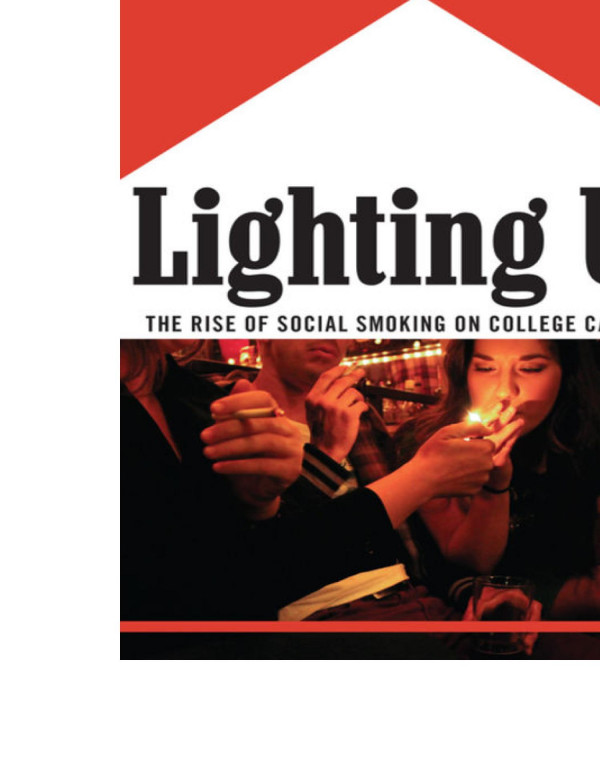

Most ebook files are in PDF format, so you can easily read them using various software such as Foxit Reader or directly on the Google Chrome browser.
Some ebook files are released by publishers in other formats such as .awz, .mobi, .epub, .fb2, etc. You may need to install specific software to read these formats on mobile/PC, such as Calibre.
Please read the tutorial at this link: https://ebookbell.com/faq
We offer FREE conversion to the popular formats you request; however, this may take some time. Therefore, right after payment, please email us, and we will try to provide the service as quickly as possible.
For some exceptional file formats or broken links (if any), please refrain from opening any disputes. Instead, email us first, and we will try to assist within a maximum of 6 hours.
EbookBell Team

4.3
28 reviewsWhile the past 40 years have seen significant declines in adult smoking, this is not the case among young adults, who have the highest prevalence of smoking of all other age groups. At a time when just about everyone knows that smoking is bad for you, why do so many college students smoke? Is it a short lived phase or do they continue throughout the college years? And what happens after college, when they enter the “real world”? Drawing on interviews and focus groups with hundreds of young adults, Lighting Up takes the reader into their everyday lives to explore social smoking.
Mimi Nichter argues that we must understand more about the meaning of social and low level smoking to youth, the social contexts that cause them to take up (or not take up) the habit, and the way that smoking plays a large role in students’ social lives. Nichter examines how smoking facilitates social interaction, helps young people express and explore their identity, and serves as a means for communicating emotional states. Most college students who smoked socially were confident that “this was no big deal.” After all, they were “not really smokers” and they would only be smoking for a short time. But, as graduation neared, they expressed ambivalence or reluctance to quit. As many grads today step into an uncertain future, where the prospect of finding a good job in a timely manner is unlikely, their 20s may be a time of great stress and instability. For those who have come to depend on the comfort of cigarettes during college, this array of life stressors may make cutting back or quitting more difficult, despite one’s intentions and understandings of the harms of tobacco. And emerging products on the market, like e-cigarettes, offer an opportunity to move from smoking to vaping. Lighting Up considers how smoking fits into the lives of young adults and how uncertain times may lead to uncertain smoking trajectories that reach into adulthood.